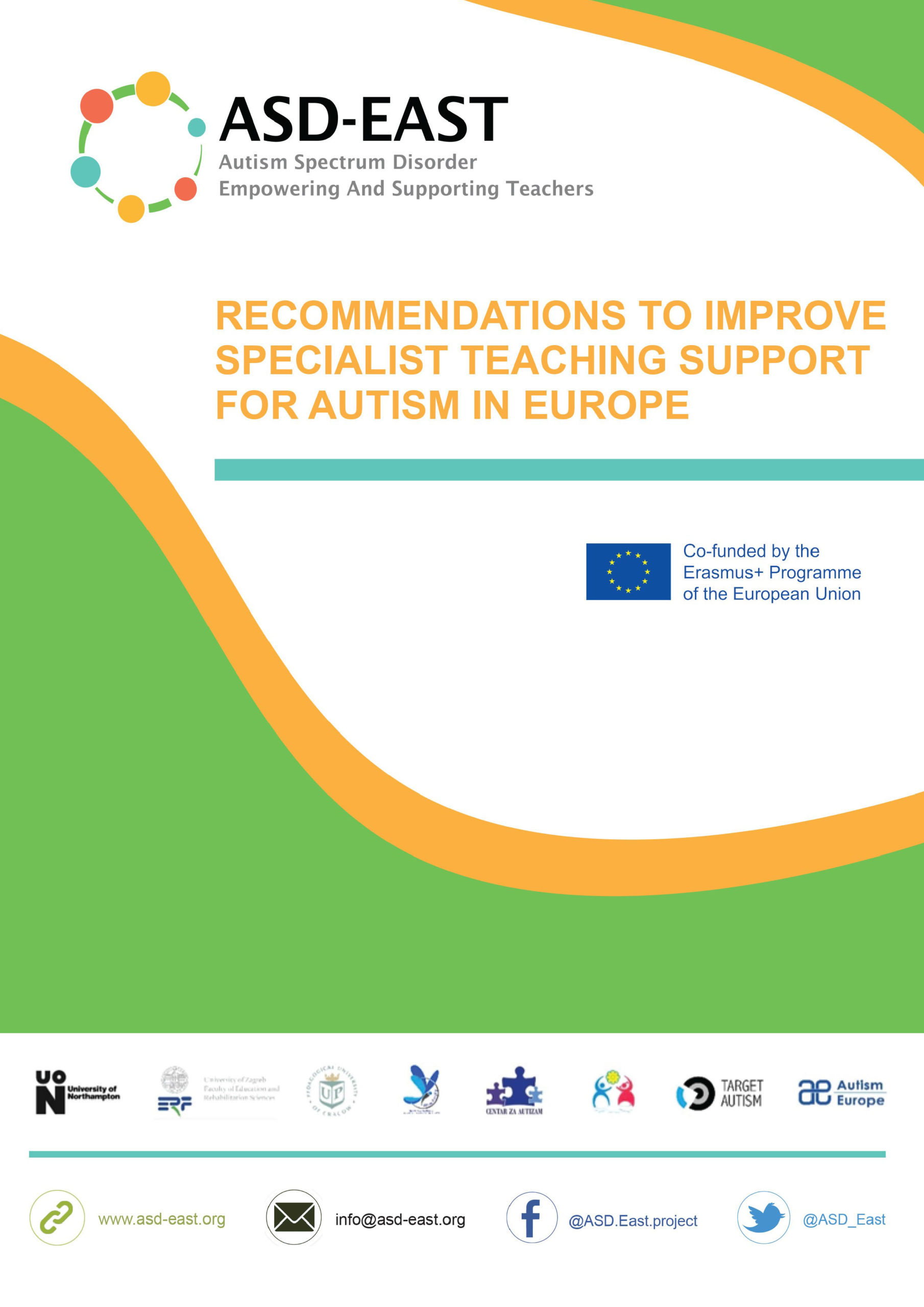
The Autism Spectrum Disorder-Empowering and Supporting Teachers (ASD-EAST) project focuses on empowering specialist educators in Central/Eastern/Balkan settings to support effective inclusion of children on the autism spectrum in education. Running from September 2018 to August 2020, the project is funded by the European Commission’s Erasmus + Programme.
There are many benefits to investing in teachers who work closely with autistic children on a daily basis. It is evident that teachers who have a solid understanding of autism and have access to resources and professional development opportunities will have more success in supporting the needs of autistic learners in their classrooms.
Based on the data collected and overall experiences of teachers who took part in the developed trainings, ASD-EAST partners created recommendations for policy-makers to highlight the need to improve the social inclusion of people on the autism spectrum in classrooms through specialist teacher education.
ASD-EAST strongly recommends that European countries ensure the development of effective specialist teacher trainings to respond to the support needs of autistic learners. Ensuring equal access to education is of paramount importance and is also a legal obligation, under the UN Convention on the Rights of People with Disabilities (UNCRPD) – ratified by the European Union and all its member states.
ASD-EAST recommends the development of appropriate initial and advanced training, including practical and field based experiences, as well as access to current research and best practice teaching strategies.
- Emphasis should be placed on updating specialist knowledge and refreshing practice with respect to teachers’ experience enhancing their competence and confidence.
- Training in autism should be provided on an ongoing basis.
- A community of practice should be created to help educators share knowledge across local and regional educational networks.
ASD-EAST also recommends that an accurate understanding of autism and individualisation of learning and teaching be central to the training.
- Individualisation should be put at the centre of education as it is key to ensuring the specific needs of each autistic learner are met.
- Practical, evidence-based strategies should be employed to support curriculum access and social inclusion.
Lastly, ASD-EAST recommends a general improvement to the level of knowledge and training on autism to ensure a holistic approach and effective collaboration with families.
- All staff coming in contact with the children during the day should be adequately trained to support the social inclusion of people on the autism spectrum.
- Methods of communication between departments and professionals should be streamlined in order to keep parents continually informed.